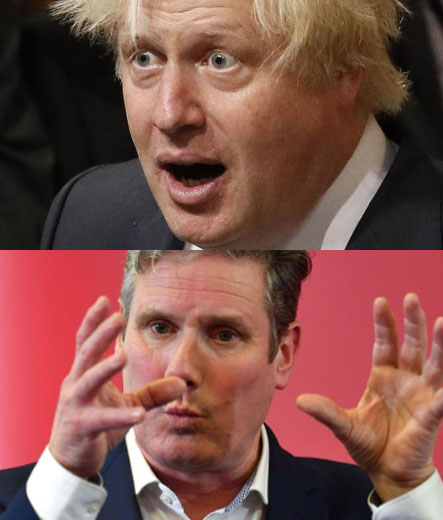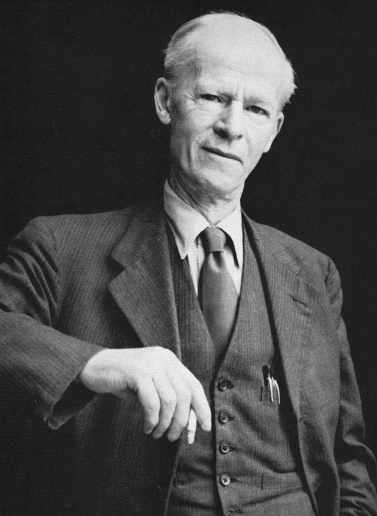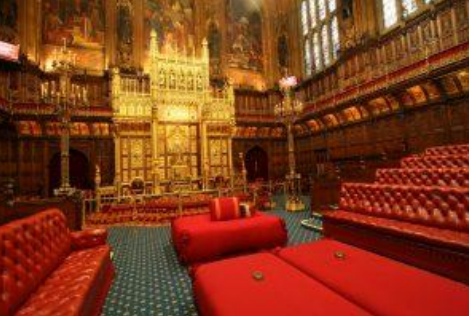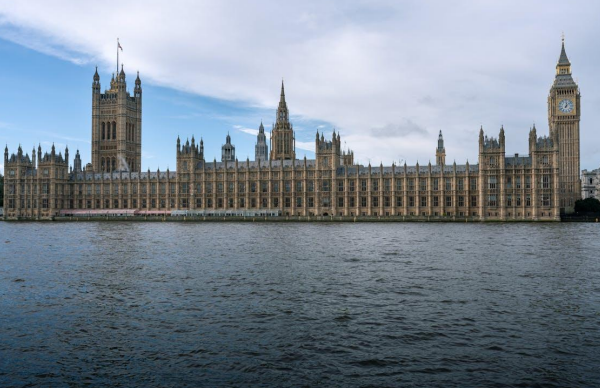REGULAR READERS will know that the National Liberal Party has a long-standing policy of publishing articles to promote – even provoke – free thought & debate.
We do this by presenting a diverse range of opinions that may be of interest to our readers. These opinions are from right across the political divide.
We’ve previously reproduced articles by Andrew Torba, the CEO of Gab.com (which describes itself as a ‘free speech technology company owned and operated by Christians.’) Torba describes himself as a Christian Nationalist.
As National Liberals we obviously have differences with Christian Nationalists & Torba. However, we find his articles & thinking very interesting.
The following – which originally appeared on 1st May – is one such article. It looks at the Amish & their relationship with the modern in general & technology in particular. We were struck by Torba’s view that the Amish ‘aren’t anti-progress. They’re anti-frivolity’.
The Amish – who could be described as an ethnoreligious group – are of interest to those who’re interested in community & positive identity. Various non-conformists, including anti-materialists and those into self-sufficiency & living off grid would also find them worthy of study. On saying that, we should always remember never to view any group though rose-tinted spectacles.
.

A picture – that accompanied the original article from Gab.com – of the Amish. Can various non-conformists learn anything from this ethnoreligious group, particularly in respect of Information Technology?
.
The Lost Promise Of The Digital Age
.
WHEN THE INTERNET first emerged, it was framed as a tool for liberation. We believed it would democratize information, give a voice to the voiceless, and foster a global village of informed citizens. In many ways, it has. We carry pocket-sized supercomputers that grant us instant access to medical research, ancient literature, and the collective stories of humanity. Yet, instead of fostering deeper understanding, the Internet has become a battleground of chaos, a playground for algorithms that prioritize outrage over insight, and a mirror reflecting our most fragmented selves.
.
Today, the paradox is undeniable: We are more connected than ever, yet lonelier; more informed than ever, yet more confused; more entertained than ever, yet emptier than before. Studies show that rates of anxiety, depression, and social isolation have skyrocketed alongside smartphone adoption. Birth and marriage rates have plummeted. Political discourse has devolved into performative tribalism, where nuance is drowned out by the next viral hot take. Even our relationships with truth have frayed—how can we distinguish fact from fiction when every click rewards sensationalism?
.
Every year, my family and I visit Lancaster County, a place where time seems to bend backward. The Amish community there lives without smartphones, social media, or even electricity in many homes. Their one-room schoolhouses, horse-drawn buggies, and sprawling farmlands feel like a relic of another era. But what strikes me most is their quiet, unshakable contentment.
.
Here, children play in dirt yards, their laughter unmediated by screens. Families gather for meals without the hum of notifications. Neighbors work side by side to build barns, their hands calloused by labor, not keyboards. The Amish aren’t just avoiding technology; they’re rejecting the frenetic pace and fragmented attention it demands. They’ve chosen a life where time is not a commodity to be optimized but a rhythm to be lived.
.
This isn’t nostalgia—it’s a deliberate philosophy. The Amish evaluate every technology through the lens of community and faith. If a device threatens their values (like individualism over collective well-being), it’s rejected. Their birth rates, four times the national average, and their low rates of mental health crises suggest a parallel society thriving in ways the modern world struggles to replicate. They aren’t perfect, of course, but their approach invites a provocative question: What if less really is more?
.
The Internet promised liberation but delivered a new kind of bondage. We’ve outsourced our attention spans to push notifications, our memories to search engines, and our social skills to emojis. The result? A culture of superficiality where deep thought is rare and genuine connection rarer. Even our sense of purpose feels diluted — how often do we scroll through endless feeds instead of engaging with the physical world, our loved ones, or our own creativity?
.
The Amish, by contrast, live in a world where every action has weight. Their work is tangible: planting crops, crafting furniture, baking bread. Their relationships are rooted in proximity and shared responsibility. They don’t “network” — they nurture. Perhaps most importantly, they have no illusion that happiness lies in keeping up with the Joneses (or the Kardashians, as the case may be). Their simplicity isn’t a lack; it’s a focus.
.
The Amish aren’t anti-progress. They’re anti-frivolity. Their rejection of modern tech isn’t about ignorance but intentionality. They’ve sidestepped the dopamine-driven cycles of consumerism and digital validation that ensnare so many of us. Without screens to mediate their lives, they’re forced to confront the raw, messy, beautiful reality of existence, something we’ve largely forgotten how to do.
.
Consider their approach to education. Amish schools stop at eighth grade, emphasizing practical skills and community values over abstract theory. Yet their adult literacy rate is near 100%, and their children grow up with a clear sense of purpose. Meanwhile, in the digital world, we binge TED Talks and online courses while feeling increasingly unmoored. The irony is crushing.
.
I’m not suggesting we all abandon our smartphones and take up farming (though there’s something appealing about that). The Internet has undeniable benefits: it connects us to distant loved ones, provides lifelines for dissident voices, and drives innovation. But the Amish remind us that technology is a tool, not a master. Their lives are a testament to the power of boundaries, of choosing what serves the soul over what merely serves the ego.
.
Maybe the solution isn’t to quit the digital world entirely but to become more Amish in spirit. What if we turned off notifications, reclaimed our evenings for conversation instead of streaming, or prioritized local communities over global networks? What if we put the phones, tablets, and screens down for one whole day a week (the horror!) What if we asked ourselves, before every click or post, “Does this bring me closer to what matters?”
.
The Amish don’t just avoid technology; they interrogate it. Before adopting a new tool, they ask: Does this strengthen our community? Does it honor our values? Does it free us, or will it bind us to systems we can’t control? This is the question we’ve avoided with both the Internet and AI. In our rush to “innovate,” we’ve treated technology as an unqualified good, blind to its costs.
.
Perhaps the real answer isn’t to retreat into an analog cocoon, but to adopt a similar philosophy of discernment. What if we approached AI and other new technology not with blind faith but with the humility of asking, “What might this break?” What if we shared the Internet with the world not as a monolith, but as a platform adaptable to unique cultures rather than flattening them into a single, corporate-defined mold? The Amish remind us that progress isn’t a straight line, it’s a negotiation between what we can do and what we should do.
.
The Internet didn’t ruin humanity. It simply amplified what was already there: our brilliance, yes, but also our capacity for self-destruction. The Amish didn’t escape this truth—they embraced it, choosing simplicity as a bulwark against chaos. Perhaps their greatest lesson isn’t about rejecting the modern world but about remembering that we always have a choice. After all, the best tool is the one you control, not the one that controls you.
.
So, as I return to my inbox and the buzz of daily digital life, I carry their quiet wisdom with me. In a world drowning in noise, maybe the most radical act is to unplug, look someone in the eye, and ask, “What’s new?” without a screen between us.





































